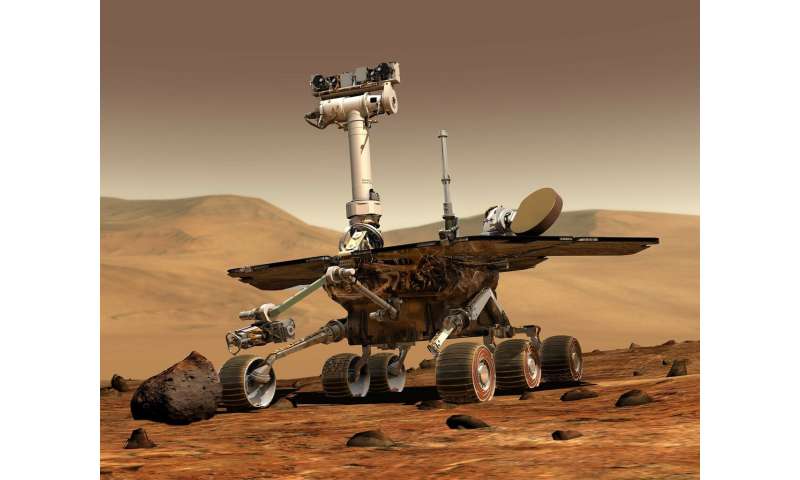Best of Last Week: Mars findings, dirty smartphones, and your brain on a low-carb diet

It was a good week for space news as a team with members from several institutions in the U.S. and one in the U.K. found evidence of a cosmic impact that destroyed one of the world's earliest human settlements—meltglass at Abu Hureyra in what is now Syria, that was formed at temperatures higher than humans could achieve. Also, NASA's Curiosity rover snapped its highest-resolution panorama to date—a 1.8-billion-pixel assemblage of terrain surrounding the rover taken during the 2019 Thanksgiving holiday. And in related news, Jacob Heinz with Washington State University and Dirk Schulze-Makuch with Technische Universität Berlin found evidence suggesting that the organic compound thiophenes found on Mars by the Curiosity rover could be consistent with the presence of early life on Mars.
In technology news, a team at Rensselaer Polytechnic Institute showed that a potassium metal battery could emerge as a rival to lithium-ion technology. The researchers demonstrated a way to overcome the problem of dendrite formation. And Goodyear unveiled a biodegradable concept tire that could regenerate its tread as needed—called reCharge, the new kind of tire would also eliminate flat tires.
A combined team from KU Leuven in Belgium and the United Kingdom's University of Birmingham found that insecure encryption configurations could compromise the security of Hyundai, Toyota, and Kia vehicles. And a team at Penn State's Battery and Energy Storage Technology Center announced that they had developed a lithium-ion battery that is safe, has high power and can last for 1 million miles.
In other news, a team at the University of Arizona found that the average smartphone is seven times dirtier than the average toilet—and they note that the CDC recommends that everyone check with their phone's maker to learn how to rid it of germs in light of the coronavirus epidemic. Also, a team at the University of York identified a sub-atomic particle that could have formed the "dark matter" in the universe during the Big Bang.
And finally, if you have been looking for ways to keep your brain healthy as you age, you may want to check out the results of a study led by Stony Brook University professor Lilianne Mujica-Parodi—she and her team conducted a study that showed that a low-carb diet may prevent or reverse age-related effects within the brain.
© 2020 Science X Network